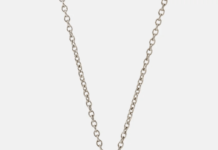
Custom wire mesh is a versatile and essential material used across various industries for filtration, reinforcement, security, and decorative purposes. It is available in a wide range of specifications and materials, allowing for tailored solutions that meet specific project requirements. Whether you’re in construction, manufacturing, or design, selecting the right custom wire mesh material is critical to achieving the desired performance and durability. In this guide, we’ll explore key considerations when choosing custom wire mesh for your needs.
What is Custom Wire Mesh?
Custom wire mesh refers to a type of woven or welded mesh that is manufactured to meet specific requirements for size, material, and application. Unlike standard wire mesh, which is produced in fixed sizes and material types, custom Wire mesh is engineered to provide flexibility and precision. It can be made from various metals, including stainless steel, aluminum, copper, and carbon steel, depending on the intended use. The mesh is designed with customized wire diameters, mesh opening sizes, and the pattern of weave or weld to accommodate the particular demands of the project.
Types of Custom Wire Mesh
There are several types of custom wire mesh available, each suited for different applications. Below are some of the most commonly used types:
- Welded Wire Mesh
This type of custom wire mesh is made by welding the intersecting wires at the joints. It offers high strength and is often used in construction and reinforcement applications. Welded wire mesh is available in various wire gauges and opening sizes, making it adaptable for different purposes, such as fencing, concrete reinforcement, and industrial shelving. - Woven Wire Mesh
Woven custom wire mesh is created by interlacing wires, forming a fabric-like structure. This type of mesh is particularly useful for filtration and sieving applications. Woven wire mesh is commonly used in industries like food processing, pharmaceuticals, and aerospace due to its ability to provide precise filtering and separation. - Expanded Metal Mesh
Expanded metal is created by cutting and stretching a single sheet of metal to form a mesh with diamond-shaped openings. Custom expanded metal mesh can be used for applications such as security barriers, ventilation, and flooring. Its durability and unique pattern offer both strength and aesthetic appeal. - Perforated Metal Mesh
Custom perforated metal mesh is made by punching holes in a solid sheet of metal. This type of mesh is commonly used in applications where drainage, ventilation, or light diffusion is needed. Perforated mesh is often used in architectural designs, acoustic panels, and industrial filters.
Key Considerations When Choosing Custom Wire Mesh
Selecting the right custom wire mesh requires careful consideration of several factors to ensure that it meets the specific requirements of your application. Here are some important aspects to consider:
- Material Type
The material chosen for custom wire mesh plays a critical role in its performance, durability, and suitability for the application. Stainless steel is a popular choice due to its corrosion resistance, making it ideal for use in outdoor environments or areas exposed to moisture. Aluminum wire mesh is lightweight and resistant to rust, making it suitable for applications in the automotive and food industries. Copper, on the other hand, offers excellent conductivity and is often used in electrical and telecom applications. - Mesh Size and Aperture
The mesh size or aperture refers to the size of the openings in the wire mesh. The size is typically measured in terms of the number of openings per inch or the dimension of the openings themselves. It’s crucial to select the appropriate mesh size based on the material being processed or the specific requirements of the application. For instance, finer mesh is needed for filtration, while larger openings are required for security or fencing purposes. - Wire Gauge
The wire gauge refers to the thickness of the individual wires in the mesh. A thicker wire gauge offers greater strength and durability but may reduce the flexibility of the mesh. In contrast, a thinner gauge is more flexible but may be less durable. When selecting custom wire mesh, ensure that the wire gauge is appropriate for the stresses and loads it will face. - Finish and Coating
Depending on the environment in which the mesh will be used, you may need to consider a protective finish or coating. For outdoor applications, custom wire mesh may be coated with materials like galvanized zinc or plastic to protect against rust and corrosion. Powder coating or painting may also be used to enhance aesthetics or provide additional protection against environmental factors.
Applications of Custom Wire Mesh
Custom wire mesh is used in a wide variety of applications across multiple industries. Some common uses include:
- Construction: Reinforcement for concrete, fencing, and partition walls.
- Industrial Filtration: Air, water, and chemical filtration in industries such as automotive, food processing, and pharmaceuticals.
- Security: Fencing and gates for security applications, including prisons and industrial sites.
- Architectural Design: Decorative elements in building facades, balustrades, and ceiling panels.
- Agriculture: Animal enclosures and crop protection.
Conclusion
Selecting the right custom wire mesh material for your project requires understanding the specific requirements of your application. Whether you need the strength of welded wire mesh, the precision of woven wire, or the durability of expanded or perforated metal mesh, the right choice will ensure your project’s success. By considering factors such as material type, mesh size, wire gauge, and protective coatings, you can make an informed decision and achieve optimal results. Always work with trusted suppliers who can provide customized solutions tailored to your exact needs.
















